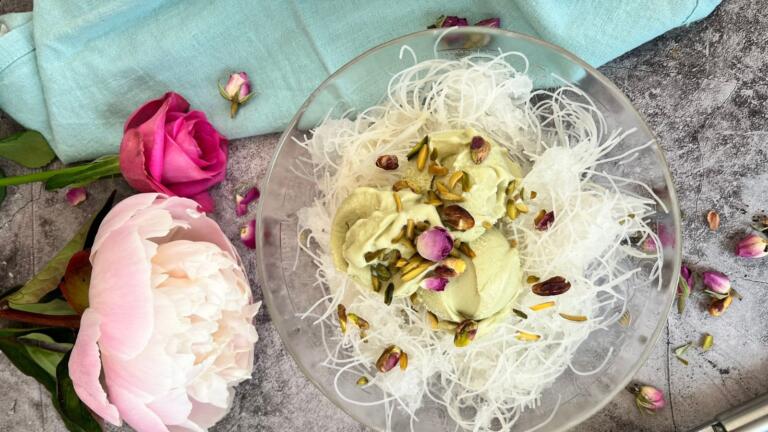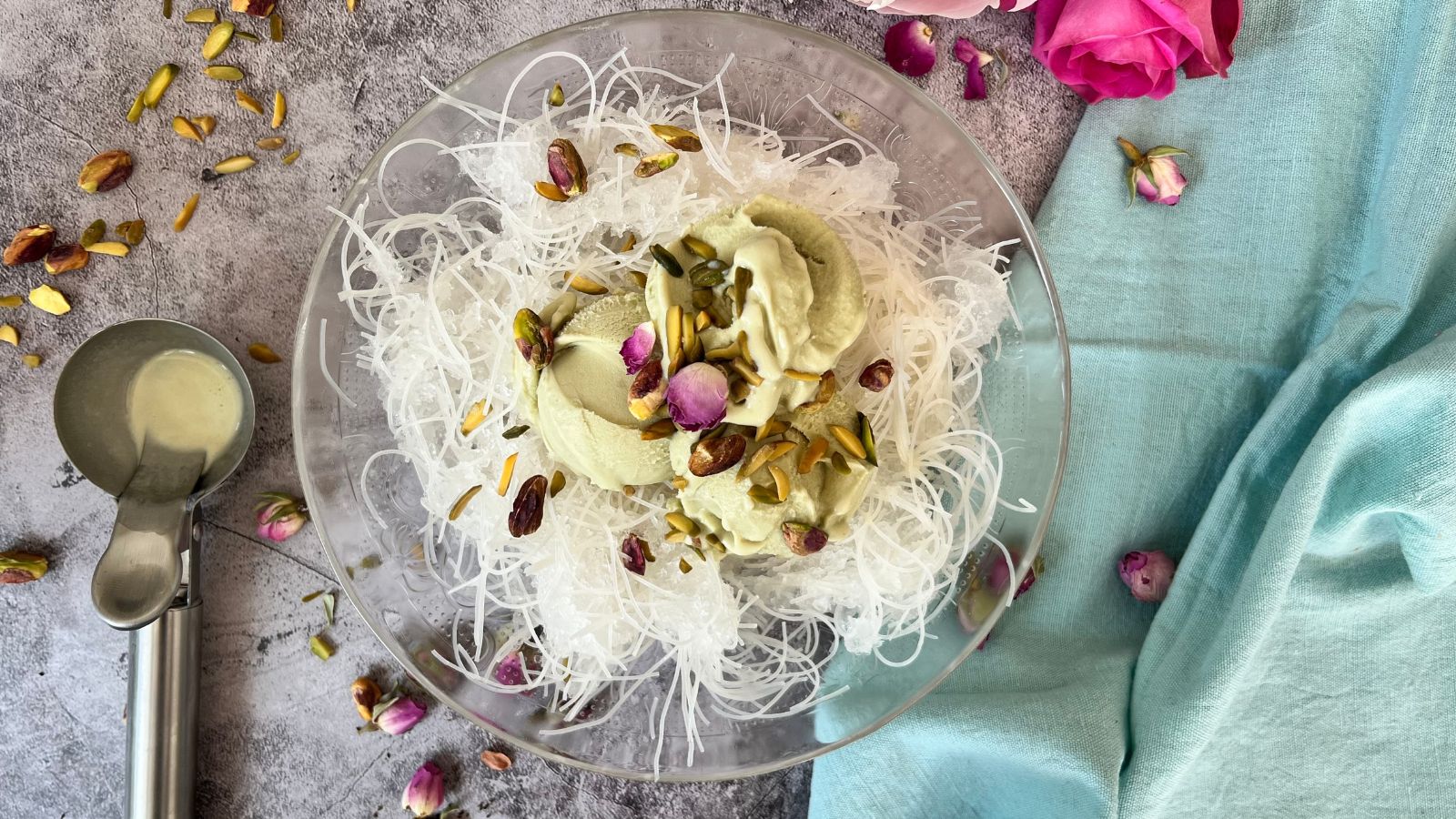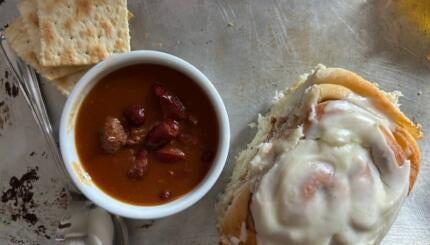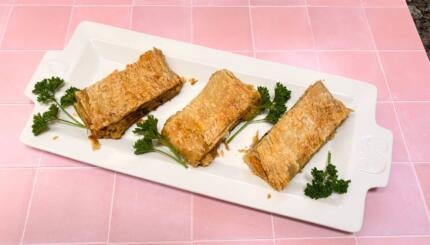Though not a requirement, in some Jewish homes it has become a tradition for the husband to buy his wife flowers before Shabbat. That is, unless you are married to a crazy foodie who will prefer something she can eat.
On a summer day many years ago, I was gifted a Persian dessert called faloodeh one Shabbat, and so it became a tradition during the summer months. Faloodeh is made with a rose syrup that’s frozen with cooked rice noodles, then scraped with a fork every few hours, to create a granita-like effect. It’s served in individual bowls topped with yet more syrup, lime juice and/or crushed pistachios. It is also common to top it with Bastani ice cream, which is made with saffron and rose, or with a decadent scoop of pistachio or mango ice cream and crowned with pistachios.
Being me, I wanted to start making this at home, and started researching recipes. I was confused to discover that most of the recipes that I found were Indian, and the dish, which included jelly, chia seeds, not freezing the noodles and adding milk, was quite different (though nonetheless delicious!) to the one I had been eating on Shabbat.
I discovered that faloodeh was originally a Persian dessert (as opposed to the Indian “falooda”), which had travelled across the silk route along with the Mughals in 1526, and was fully adopted into Indian culture by the 1600s. It is one of the earliest known desserts (many consider it the first ice cream!), and was reserved for nobility since it was made in a Persian icehouse long before modern refrigeration. The hot climate meant that these were rare and only afforded by the very rich.
The Nosher celebrates the traditions and recipes that have brought Jews together for centuries. Donate today to keep The Nosher's stories and recipes accessible to all.
Much like how ice cream is always best when it begins to melt, the same goes for faloodeh. I like to take it out of the freezer 15 minutes before serving and by the time it hits the table, the granita is sweet, semi-frozen and slurpy, the noodles still frozen and crunchy, the perfect contrast.
I’m glad to be living in an era where freezers are more accessible, which makes me appreciate my Shabbat gift even more, though you can (and should!) enjoy it any day of the week, preferably in the sunshine.

Faloodeh
This refreshing Persian dessert features delicate rice noodles soaked in fragrant rose syrup, frozen into a granita-like texture and served with ice cream.
- Total Time: 30 minutes + 5 hours freezing time
- Yield: Serves 4-6
Ingredients
- 1½ cups sugar
- 4½ cups water
- 1 lime, juiced
- 2 Tbsp rose water
- 115 g thin vermicelli rice noodles
- 1 scoop of mango or pistachio ice cream, to serve (optional)
- 100 g crushed or whole pistachios or nuts of choice, to serve (optional)
Instructions
- Start by preparing the rose syrup. Mix the sugar and water and bring to the boil in a medium saucepan over medium-high heat. Once boiled, reduce the heat and simmer for 5 minutes.
- Remove from the heat and stir in the rosewater and lime juice. Keep half a cup of the syrup to one side for serving.
- Whilst the syrup is cooling down, cover the rice noodles in boiling water and leave them to stand for 5-10 minutes.
- Once they are cooked through, drain them thoroughly, and allow to cool.
- Cut the cooled noodles with kitchen scissors into small pieces and mix them with the cooled syrup.
- Tip into a freezer safe dish and freeze for 1 1/2 hours. After that time, scrape them with a fork to create the granita like effect and return to the freezer. Repeat again after another hour before returning to the freezer until you are ready to serve. (Freeze for at least 5 hours.)
- To assemble, take a sundae glass or bowl and fill two thirds with the faloodeh. Top with ice cream of your choice, and drizzle with remaining syrup, then sprinkle with pistachios or nuts of your choice.
- Prep Time: 10 minutes + 5 hours freezing time
- Cook Time: 20 minutes
- Category: Dessert
- Method: Quick
- Cuisine: Indian




I’m a diabetic what do you recommend in place of sugar??